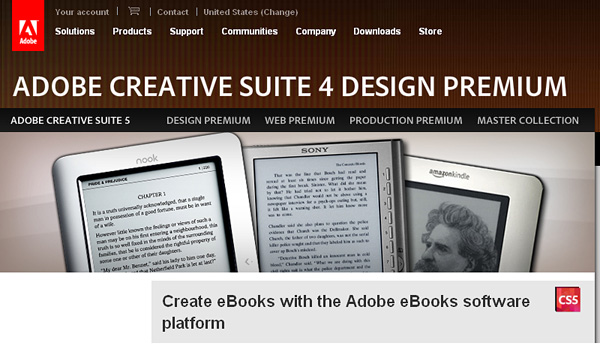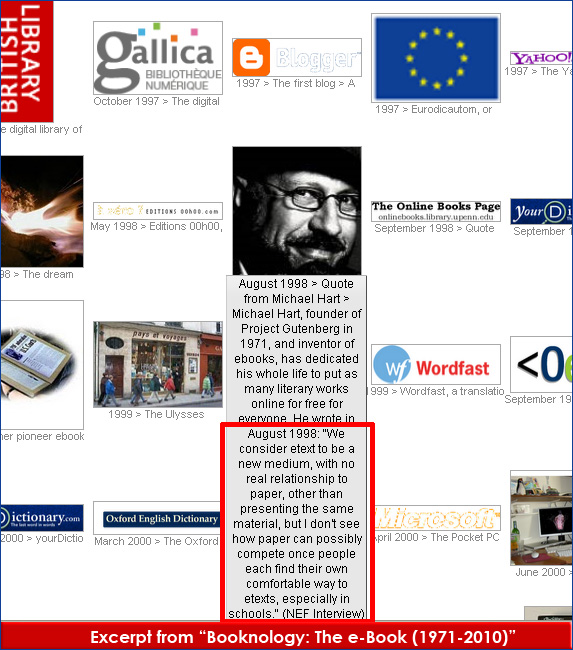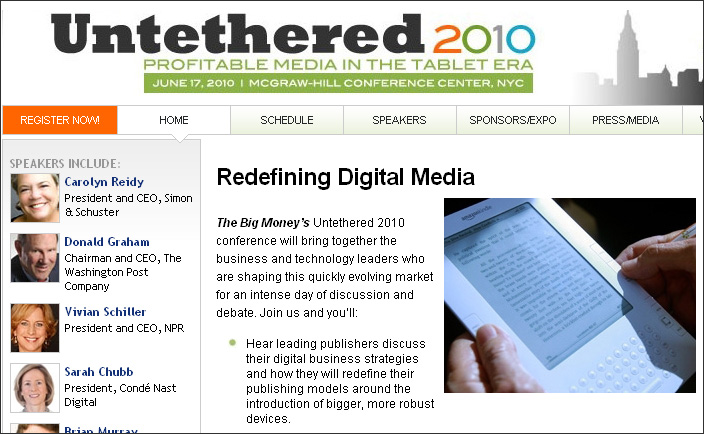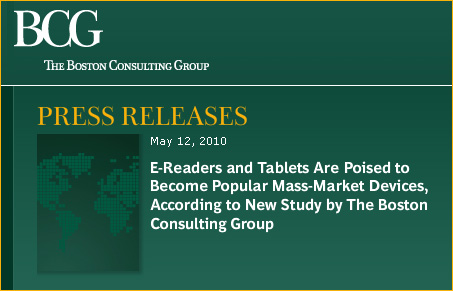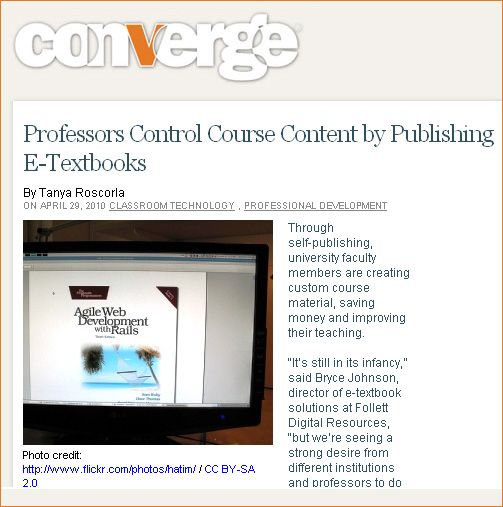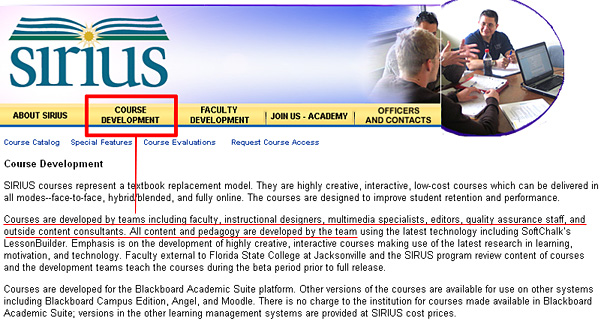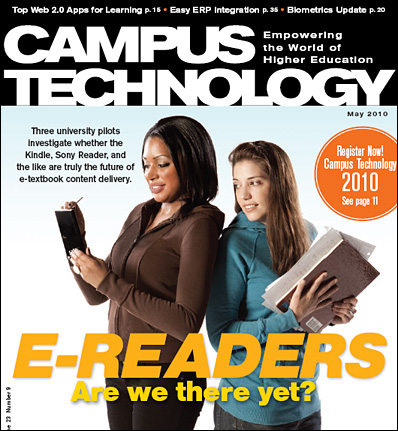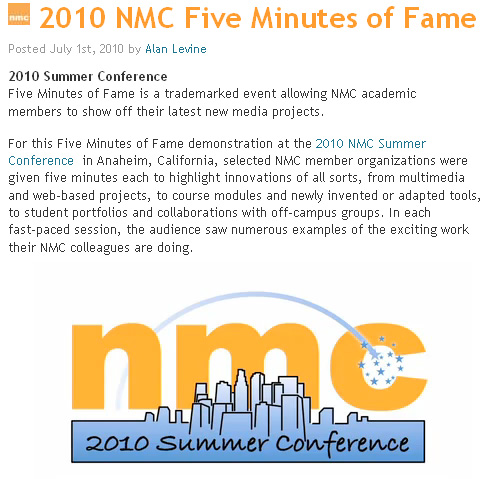 This year’s presentations included:
This year’s presentations included:
- Articulating Assessment: Digital Storytelling for Digital Work
Virginia Kuhn, University of Southern California - How IT Rescued a $100,000 No Budget Project
Lou Rera, Buffalo State College - Kindling Students – HCC’s eBook Classroom Project
Lorah Gough, Houston Community College System; Laurel Lacroix, Houston Community College System - Partnering for a 21st Century Education
Holly Ludgate, Full Sail University; Sharyn Gabriel, Orange County Public Schools; Kathy Craven, Full Sail University; Michael Cardwell, Full Sail University - Plasma Playground: Innovative Ideas for Training Students Techs
Helmut Baer, Dartmouth College - Timelines Tell All! Peasants and Revolutionaries Don’t Always Agree
Molly Ruggles, Massachusetts Institute of Technology - Touchless Interactive Art in the Personal Computer
Seiji Ikeda, University of Texas, Arlington; Collin Hover, University of Texas, Arlington - Using Voice Tools with Students in Online Courses
Gail Krovitz, Pearson Learning - Which Castle is That? Geotagging as a Tool for Research and Scholarship
Jared Bendis, Case Western Reserve University
Driving home the point on accessibility — InsideHigherEd.com
The U.S. Departments of Education and Justice on Tuesday released an open letter to colleges expressing concern that some institutions might be “using electronic book readers that are not accessible to students who are blind or have low vision” and warning them that the government will crack down on any institutions that are “requiring” disabled students to use emerging technology that does not comply with federal accessibility laws.
Earn more, charge less
He also spends less money publishing them. With his original textbook, he printed 3,000 copies and had to store them, so he didn’t break even for a while. That’s not the case with creating e-textbooks.
“You don’t have to have a bunch of books laying around, you don’t have to have the initial startup costs,” Chamberlain said, “and then you can send that savings on back to the students.”
For the past five years, Florida State College at Jacksonville has been driving down the cost of textbooks for its students through the SIRIUS initiative. SIRIUS brings together between 50 and 75 faculty members to create course material and textbooks for classes they’re qualified to teach, said Chief Operations Officer Jack Chambers. So far, they’ve developed 20 interactive general education courses.
The textbooks cost $60.98 in print, but this fall, they will publish online through CafeScribe at a price of $48 each. Eleven other colleges will use them as well.
Before the courses publish, a team of content specialists, instructional designers, quality assurance staff and multimedia personnel review them, as do expert faculty members outside the college (emphasis DSC).











